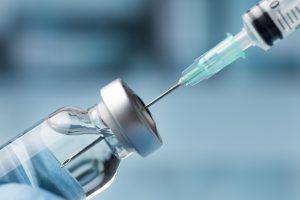It has been over two and half years since the COVID-19 pandemic started globally. Since then, many lifestyle changes have presented themselves in the forms of social distancing and face masks. Other notable changes included many businesses shutting down or reducing capacity to slow the spread of the virus. Perhaps the most significant change comes in the form of multiple COVID-19 vaccines. Though countless individuals worldwide have received these vaccinations without any issues, it seems some reported cases of myocarditis may be linked to one vaccine in particular. But what is myocarditis? What are some myocarditis symptoms? Is there myocarditis treatment?

What is Myocarditis?
Myocarditis is an inflammation of the myocardium, otherwise known as the heart muscle. This inflammation often creates issues with the heart’s pumping ability, causing arrhythmias (abnormal or rapid heart rhythms).
Severe myocarditis often weakens an individual’s heart and makes it difficult for the rest of the body to get enough blood. The lack of blood may cause blood clots, which can lead to heart attacks or strokes.
Myocarditis Symptoms
Early-stage myocarditis symptoms include irregular or rapid heartbeats, shortness of breath, chest pain, or possibly no symptoms at all. More myocarditis symptoms include:
- Fatigue
- Headaches
- Body aches
- Joint pain
- Fevers
- Diarrhea
- Sore throat
- Fluid buildup causing inflammation and swelling in ankles, legs, and feet.
Frequently, myocarditis symptoms mimic those of a heart attack. If an individual experiences unexplained chest pains or shortness of breath, they should seek medical help immediately.
Myocarditis Symptoms in Children
When children develop myocarditis, their symptoms may vary from those of an adult:
- Fever
- Chest pain
- Accelerated breathing
- Fainting
- Difficulty breathing
- Arrhythmias
Causes
The risk of developing myocarditis is rare, and often the cause is not identified. Recent virus infections are usually the cause of viral myocarditis. On other occasions, myocarditis may result from another inflammatory condition or a bad reaction to drug use. Some potential myocarditis causes include:
- Bacteria: Developing a bacterial infection such as streptococcus, staphylococcus, the tick-borne bacterium which causes Lyme disease, and the bacterium that causes diphtheria.
- Fungi: Coming into contact with molds such as aspergillus, yeast infections such as candida, and fungi such as Histoplasma commonly found in may cause myocarditis, especially in individuals with weakened immune systems.
- Parasites: Some of these parasites include toxoplasma and Trypanosoma cruzi, transmitted by insects and causing what is known as Chagas disease.
- Viruses: Some viruses that may cause viral myocarditis include the common cold, hepatitis B and C, parvovirus, and herpes.
- Illegal drugs or medications: Some examples include antibiotics such as penicillin, medicine to treat cancer, anti-seizure medications, and illicit substances such as cocaine.
- Chemical radiation: exposure to chemicals such as carbon monoxide and radiation may often cause myocarditis.
- Other diseases: Diseases such a Lupus, Takayasus’ arteritis, and Wegener’s granulomatosis may cause the development of myocarditis.
Myocarditis Treatment
Luckily, many individuals experience improvements on their own or with treatment. Most of the time, patients fully recover from myocarditis. In more severe instances, surgeries and other procedures may be required. Treatment includes medications such as:
- Corticosteroids: Corticosteroids and other medications may help improve certain types of viral myocarditis, such as giant cell and eosinophilic myocarditis.
- Medication for chronic conditions: Myocarditis caused by chronic diseases such as Lupus often requires treatment of the underlying issue.
- Heart Medication: For certain abnormal heart rhythms or heart failure, a doctor may administer medication to reduce the risk of blood clots. Blood pressure medication may be prescribed for those with weakened hearts.
Myocarditis and the Pfizer Vaccine

- Cases of myocarditis reported to VAERS ( Vaccine Adverse Reporting System) have occurred:
- Subsequent to COVID-19 vaccination (Pfizer-BioNTech or Moderna), specifically in male adolescents and young adults,
- Commonly after the second dose
- Usually, within several days after vaccination



